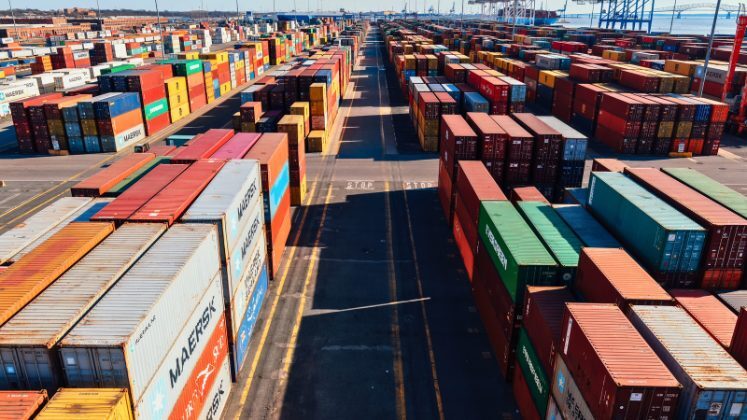Chittagong Port has experienced significant operational disruptions during the extended Eid-ul-Adha holidays, leading to delays in container handling and export shipments. The holiday period, which began on 5th June and will continue until 14th June, has resulted in a sharp decline in port activities due to a shortage of workers and logistical challenges.
According to port authorities and industry sources, approximately 30 per cent of export shipments have been affected, with scheduled loads and deliveries disrupted. Normally, over 5,000 imported containers are unloaded daily at the port; however, current figures show this number has halved, with handling dropping by more than 80 per cent. Data indicates a drastic decline in daily container delivery and unloading, with figures plummeting during the holiday period. For example, on 5th June, 4,122 TEUs were delivered, but subsequent days saw numbers dropping to as low as zero on 8th June.
The backlog has been compounded by the prolonged holidays, which prevented timely movement of containers from private inland depots to the port. As a result, many export-bound containers missed their scheduled vessel departures, causing further delays and forcing some ships to be rerouted to transshipment ports. Officials estimate that approximately 30 per cent of export containers did not meet their scheduled loading times, leading to increased shipping costs estimated at US $ 15,000 to US $ 20,000 per vessel.
Port officials and stakeholders have expressed concern over the situation, noting that the workforce shortage and container congestion have severely hampered operations. Despite a series of decisions made by the Chittagong Port Authority and Customs to keep operations afloat, businesspeople claim these measures have failed to yield positive results.
Adding to the woes, the port authority had increased storage rent by four times starting March 10, applying charges to containers remaining at the port beyond four days. Traders argue that these heightened costs, combined with operational disruptions, have placed an unnecessary financial burden on exporters and importers during an already difficult period. Many stakeholders are now demanding a waiver of storage rent during the Eid holidays and the reversal of the rent hike.
The port’s container yard, with a capacity of 53,518 TEUs, was holding 38,052 TEUs as of 10th June,within operational limits but under pressure from reduced handling capacity. Industry leaders have called for measures to ensure port services remain operational during holidays to prevent similar disruptions in the future.
Critics, including trade associations and business leaders, have urged authorities to withdraw the increased storage charges and to implement policies that facilitate continuous port operations during public holidays. They emphasise that delays during Eid are customary, but extended breaks combined with punitive charges exacerbate the crisis, impacting vital sectors like garment exports.
As the holiday period continues, port officials have assured that normalcy is expected to resume shortly. However, the current situation underscores the need for better contingency planning to support trade activities during extended holidays and festive seasons.







